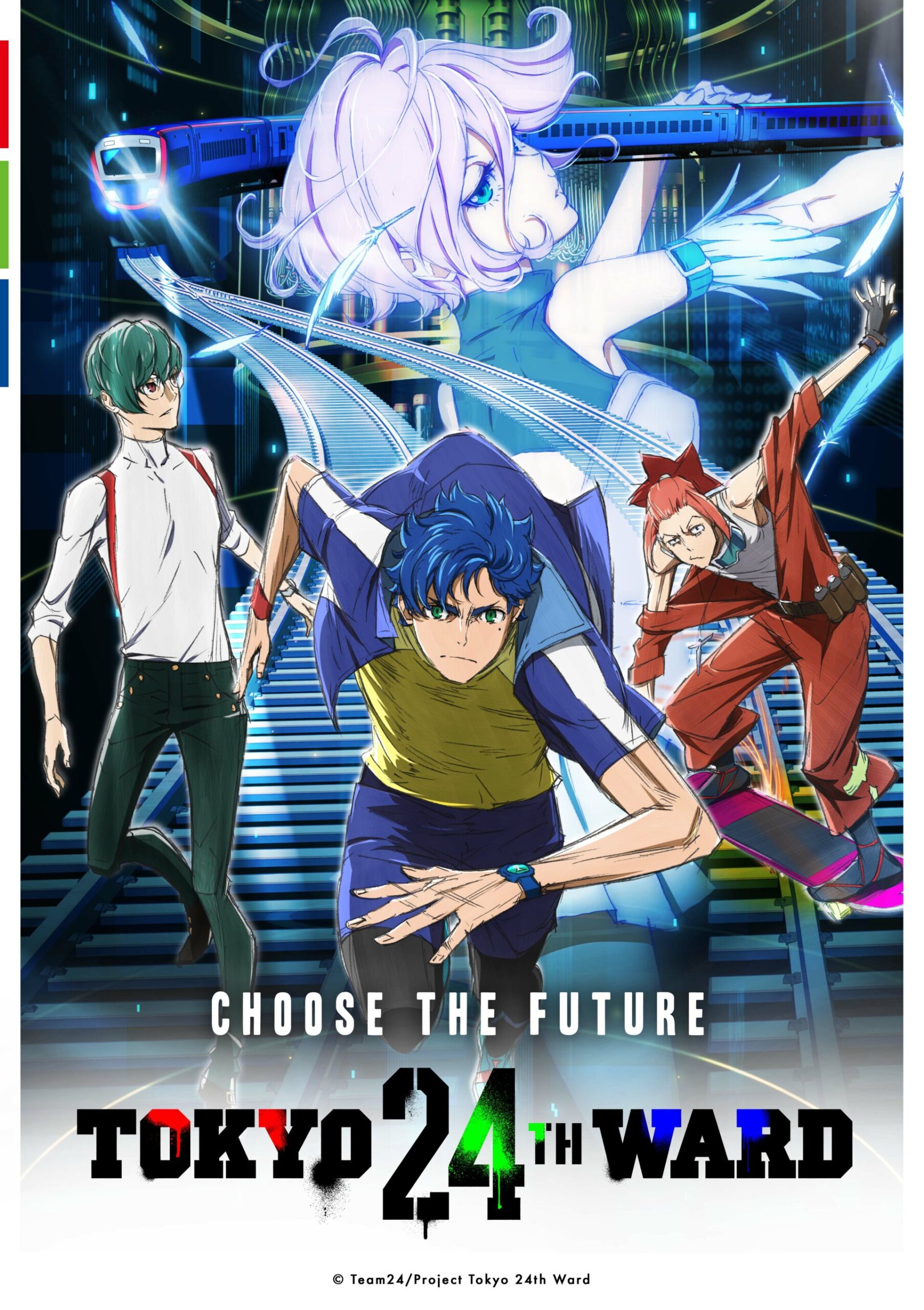Overview: As the hostilities between DoRed supporters and the government heats up, Shu (Alejandro Saab), Ran (Zeno Robinson) and Koki (Landon Mcdonald) come to an agreement on how to move forward with Asumi (Xanthe Huynh) and the 24th Ward as the series comes to a close.
Our Take: “Confession From a Mask” largely serves as a catchup for Shu as he discovers the true nature of the KANAE system, but it also presents him with his most crucial trolley decision yet for the remainder of the season. Shu must decide whether to preserve the KANAE system and public regulation but have Asumi continue to suffer or shut it down, killing her but also preserving people’s unsupervised freedom and privacy. It is by far the most compelling and morally gripping issue presented to Shu thus far. Shu’s internal dilemma coupled with the conflict between DoRed sympathizers and the government boiling over, the stakes are nicely escalated.
One looming mystery that very much faded into the background was the nature of the school building fire that took Asumi’s life. However, the reveal that it could have been prevented if Mari and Shun hadn’t been negligent of rats chewing away at cables that caused the fatal fire makes it a deeply personal struggle for them in wanting to make up for the blame they believe they share in Asumi’s death. Mari’s inclusion in the plot up until this point and after the third or fourth episode feels like an afterthought with how little she contributes anything of substance. However, she makes up for it in having a tender, potentially romantic, relationship in understanding Shu’s reckless tendencies and how to respond to them being a sensible, calming voice of reason. It also allows for a dramatic hashing out of grievances between RGB that has been a long time coming. Their physical and verbal bashing of one another allows for a refreshing and cathartic scene and outlet to air out all their misgivings about what each has done but also what they all want deep down: to see Asumi once again and ask what she wants.
Asumi raises hell and earth in the form of Tokyo city defenses to keep RGB from making it to them which would force her to face them. Of course, they are just formalities to get to their climatic reunion and it didn’t disappoint. Shu admitting his feelings for Asumi was heart-wrenching in realizing he has to let her go in both it being her decision and the right thing to do. Koki, Ran, and the rest of the world for that matter, admit their own endearment towards Asumi as RGB’s meeting with Asumi is broadcast. Most of the supporting cast chanting how they love her is a cheesy scene, and even more so when random passersby admit it. However, it does transition into a touching and saddening scene in giving Asumi one final teary eyed sendoff with RGB that had heart and humor.
With Ran utilizing people’s statistics, he is helping Sakiko create the KANAE 2.0 system that is a flawed but still an intelligently developing new version of the overwatch system, while also continuing his graffiti art. With the 24th Ward having been officially integrated into Tokyo and renamed the “Nijimi Ward,” Chikushi becomes a part of the police force and Koki continues his work with them now that they have transitioned from SARG, while also his mother’s old alma mater to become a teacher, following in her footsteps sweetly enough. Shuta continues as a baker, however his internal scars are not completely healed in having trouble going back to Mari’s shop, but he still continues his heroic endeavors. It also ties up other supporting characters’ stories decently in Gori and his shame in not knowing the atrocities he subjected his daughter to with Oth seeing him off or Mari’s reassurance and confidence in Shuta’s undeniable valiant heart. While predictable, it is an enjoyably grounded and upbeat ending in how RGB helped make a difference but that progression to help the 24th Ward, the KANAE System and themselves is not definitive or final, with there still being work to be done. It works well enough as a final ending if it is indeed the last. In the future, if the series were to continue, it would no doubt be intriguing in how it further explores the moral complexity of law and society within the Nijimi Ward, how RGB’s ideals are changed and/or maintained and how their community changes within more potential seasons. With that being said, Shu, Ran and Koki’s friendship is wholesome enough to get me through and look forward to more seasons, even if the societal plots were to wane.

